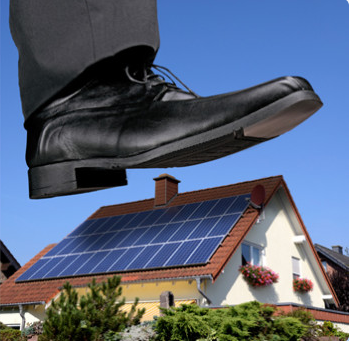INSTITUTE INDEX: The fight over solar power's future in North Carolina

Date on which the N.C. Utilities Commission (NCUC) held a hearing to kick off the process of setting the rate Duke Energy pays for solar power: 7/7/2014
Percent by which Duke Energy has said it wants to cut what it pays owners of residential solar systems to buy the excess power they generate -- what's known as "net metering": about 45
Under North Carolina rules, cents per kilowatt hour Duke Energy must now pay small generators, which is the same price households pay the company for power: 11
Cents per kilowatt hour federal law requires utilities to pay small solar power producers, which accounts for the company's generating costs but not other costs like cleanup of coal ash spills: 5 to 7
Date on which the NCUC denied a motion from the N.C. Sustainable Energy Association to require Duke Energy to commit to current net metering rates for the next decade to provide greater certainty for the state's fast-growing rooftop solar market: 5/28/2014
Rank of North Carolina among states adding solar power capacity last year: 3
Of Duke Energy's 3 million customers in North Carolina, number who currently participate in net metering: about 1,700
Percent of North Carolina's electricity customers who get power from Duke Energy under the state's monopoly utility system: 95
Profits Duke Energy reported in 2013: $2.7 billion
Amount NC WARN, a nonprofit that promotes clean energy, is spending on ads attacking Duke Energy's bid to cut solar payments, claiming the company is trying to protect its profits and monopoly control by stalling new solar installations until the state renewable energy tax credit expires at the end of 2015: $100,000
Year in which NC WARN teamed up with the conservative John Locke Foundation to hold public forums calling for an end to Duke Energy's monopoly and greater competition in North Carolina's electricity market: 2014
Amount Duke Energy spent last year alone on contributions to North Carolina Republican politicians, including those who appoint members of the NCUC, and committees active in the state's politics: $437,000
Percent of total generation Duke Energy aims to get from renewable sources in North Carolina by 2028, according to its official plan: 3
Percent it now gets from renewable sources: 2
From gas: 24
From nuclear: 33
From coal: 41
Percent of North Carolina residents who say state leaders and elected officials should seek more alternative or renewable energy sources: 83
Percent by which solar panel prices have dropped in the past five years: 70
Month in which investment bank Morgan Stanley released a report that said the falling cost of both solar panels and battery storage present a potential tipping point that could encourage large numbers of U.S. homeowners and businesses to abandon utilities altogether and go off-grid: 3/2014
Off-grid residential and commercial solar gigawatts installed in the U.S. to date: 6.2
Off-grid solar gigawatts Morgan Stanley thinks could possibly be installed in the U.S. over the next five years: 240
Off-grid solar gigawatts it thinks could be installed over the next five years given strong incentives: 415
(Click on figure to go to source.)
Tags
Sue Sturgis
Sue is the former editorial director of Facing South and the Institute for Southern Studies.
